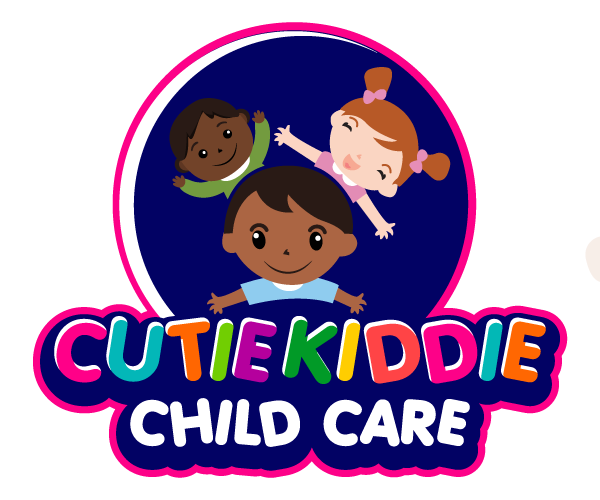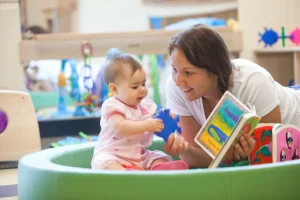A well-structured daycare routine provides children with stability, security, and a strong foundation for growth. Young children thrive on consistency, and a predictable schedule helps them feel safe while fostering essential developmental skills. Here’s how a structured daycare routine supports child development:
1. Enhances Emotional Security and Confidence
Children feel more secure when they know what to expect. A structured daycare routine helps reduce anxiety by offering a predictable schedule with set times for meals, naps, play, and learning activities. This consistency builds emotional stability, encouraging children to develop confidence and independence as they engage in different activities throughout the day.
2. Supports Cognitive Development
A well-planned daycare routine incorporates educational activities designed to stimulate cognitive growth. Structured time for reading, problem-solving, and creative play fosters critical thinking and language development. Exposure to different learning experiences in a consistent manner enhances memory retention and helps children develop essential skills needed for school readiness.
3. Encourages Social Skills and Cooperation
Daycare provides a structured environment where children learn to interact with peers. Group activities such as storytelling, group play, and collaborative projects teach important social skills like sharing, cooperation, and communication. Daily routines also help children understand social expectations, such as waiting for their turn and following instructions, which are crucial for future social interactions.
4. Promotes Healthy Habits and Self-Discipline
A structured daycare routine includes set times for meals, naps, and physical activity, promoting healthy lifestyle habits. Consistently following these schedules helps children develop self-discipline and responsibility. Regular meal times encourage healthy eating habits, while scheduled rest times ensure proper sleep patterns, which are essential for overall growth and well-being.
5. Fosters Independence and Responsibility
Structured routines allow children to engage in age-appropriate tasks, helping them build independence. Simple activities like cleaning up after playtime, washing hands before meals, and putting on shoes reinforce responsibility and self-sufficiency. When children learn to follow a routine, they develop time management skills that will benefit them later in life.
6. Enhances Language and Communication Skills
Daily interactions with caregivers and peers in a structured environment provide ample opportunities for language development. Circle time, storytelling, and structured conversations help children expand their vocabulary and improve communication skills. Engaging in discussions, asking questions, and expressing emotions within a routine-based setting helps children become confident communicators.
7. Stimulates Creativity and Exploration
A structured daycare routine doesn’t mean a rigid schedule—it includes time for creativity and exploration. Activities like arts and crafts, music, and imaginative play encourage children to express themselves while developing fine motor skills and cognitive abilities. A balance of structured learning and free play nurtures curiosity and problem-solving skills.
8. Prepares Children for Future Educational Settings
A structured daycare routine closely mirrors the environment of preschool and kindergarten, helping children transition smoothly to formal education. Following a schedule, listening to instructions, and engaging in group activities prepare children for the expectations and structure of a classroom setting.
Final Words
A structured daycare routine plays a vital role in a child’s overall development by providing emotional security, fostering social skills, and encouraging cognitive growth. When children experience a predictable and engaging routine, they develop the confidence, discipline, and independence needed for future success. Choosing a daycare that values structured learning ensures that children are nurtured in a way that supports their developmental milestones while keeping them engaged and happy throughout the day.




